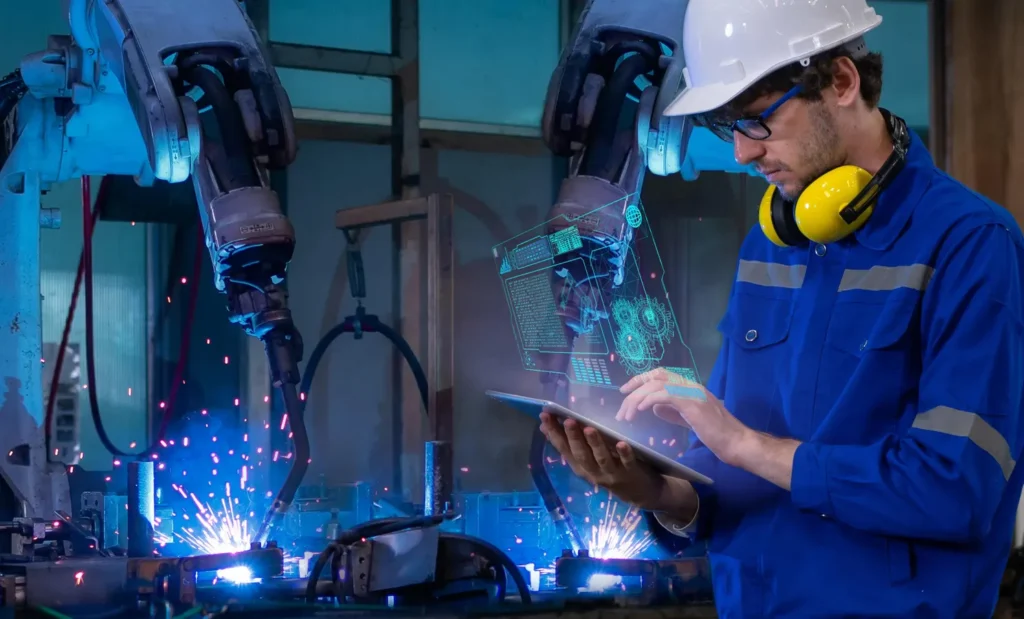The ongoing digital revolution is reshaping industries across the globe, pushing traditional sectors to evolve or risk becoming obsolete. While tech companies are often the focus of innovation discussions, the true power of digital transformation lies in its ability to penetrate and transform longstanding industries such as manufacturing, agriculture, retail, healthcare, and finance. These industries, often perceived as rigid and resistant to change, are now embracing technology in ways that are changing the very fabric of their operations. Digital transformation in traditional industries is not merely a trend—it is a necessity for survival and growth in today’s increasingly competitive environment.
Understanding Digital Transformation in Traditional Industries
At its core, digital transformation refers to the integration of digital technologies into all areas of business operations, fundamentally changing how companies operate and deliver value to their customers. In traditional industries, this transformation manifests in a variety of ways, including automation, data-driven decision-making, new business models, improved customer experiences, and enhanced operational efficiency.
However, this transformation is not just about adopting new technology. It’s about reshaping organizational culture, upskilling employees, and rethinking business processes to make use of the vast potential of digital tools. For companies in traditional industries, this journey is often challenging but undeniably rewarding.
The Drivers of Digital Transformation in Traditional Industries
- Customer Expectations
In today’s world, customers expect more than just quality products and services. They demand personalized, fast, and seamless experiences. For industries like retail, manufacturing, and hospitality, meeting these expectations requires adopting advanced technologies like artificial intelligence (AI), the Internet of Things (IoT), and data analytics to enhance service offerings and streamline customer interactions. - Increased Competition
The rise of agile, tech-driven startups has made competition fiercer than ever. Traditional businesses that are slow to innovate risk being outpaced by more nimble, digital-first competitors. Digital transformation helps these businesses maintain their competitive edge by optimizing processes, improving product quality, and enabling faster time-to-market. - Operational Efficiency
Digital technologies, from cloud computing to IoT and automation, allow businesses to streamline their operations, reduce waste, and optimize resource usage. In industries like manufacturing, the shift from manual processes to smart, connected systems allows for predictive maintenance, real-time monitoring, and data-driven insights—leading to better decision-making and higher productivity. - Regulatory Pressures
Industries like healthcare and finance are subject to stringent regulatory requirements that demand high levels of transparency, data accuracy, and compliance. Digital tools help organizations stay ahead of these requirements by offering automated solutions for reporting, tracking, and managing data in a secure and compliant manner.
Key Technologies Driving Transformation
- Cloud Computing
Cloud technologies enable businesses to access scalable computing resources, store vast amounts of data, and run applications more efficiently. For traditional industries like logistics or retail, the ability to move critical operations to the cloud facilitates faster data processing, better collaboration, and cost savings. - Internet of Things (IoT)
IoT connects devices, sensors, and equipment to the internet, allowing industries to monitor and control systems remotely. In manufacturing, IoT is used for predictive maintenance, while in agriculture, it allows for precision farming. This technology brings immense value in improving the performance of machinery and optimizing operational workflows. - Artificial Intelligence (AI) and Machine Learning (ML)
AI and ML can automate complex tasks, optimize decision-making, and enhance customer interactions. For example, AI is revolutionizing customer service through chatbots and voice assistants, while in manufacturing, it can predict machinery failures before they occur, saving costs on repairs and downtime. - Big Data and Analytics
Big data provides the ability to process and analyze massive amounts of information to derive actionable insights. Traditional industries like healthcare, finance, and insurance benefit from big data by improving risk assessments, understanding customer behavior, and offering more personalized products and services. - Automation and Robotics
Automation in the form of robotics and intelligent machines is transforming industries such as manufacturing and logistics. Robots are used for tasks like assembly, packaging, and delivery, while automated systems improve inventory management and fulfillment processes in the retail sector.
Impact on Traditional Industries
1. Manufacturing
The manufacturing industry has seen perhaps the most profound changes due to digital transformation. Smart factories, powered by IoT sensors and AI-driven analytics, enable real-time monitoring and predictive maintenance. Robotics and automation have reduced labor costs while improving precision and throughput. The ability to leverage 3D printing (or additive manufacturing) has also opened new doors for custom-made products and supply chain innovations.
2. Healthcare
Digital transformation is revolutionizing healthcare by improving patient care, optimizing administrative processes, and enabling new treatment approaches. Electronic health records (EHR), telemedicine, AI-powered diagnostics, and wearable health devices are just a few examples of how the sector is benefiting. Hospitals can now track patient data in real-time, making healthcare more efficient, personalized, and accessible.
3. Retail
In retail, the adoption of digital tools such as e-commerce platforms, augmented reality (AR), and predictive analytics has transformed the way businesses interact with customers. With e-commerce and omnichannel marketing, retailers can offer personalized shopping experiences, improve inventory management, and enhance customer service through AI-powered chatbots and virtual assistants.
4. Agriculture
Agriculture is benefiting from digital transformation through precision farming technologies. Sensors and drones are used to monitor crop health, soil conditions, and weather patterns, enabling farmers to make data-driven decisions. This reduces the use of water, fertilizers, and pesticides, while improving yields and sustainability.
5. Finance
In finance, digital banking, blockchain, and AI-based risk assessment tools are leading to more efficient and secure financial services. Digital platforms are making it easier for consumers to access banking services, while AI-driven algorithms help institutions with fraud detection, risk analysis, and customer service.
Challenges in Digital Transformation for Traditional Industries
While the benefits of digital transformation are clear, traditional industries face several hurdles:
- Resistance to Change
Employees in established industries may be resistant to adopting new technologies, particularly if they feel it threatens their job security or disrupts established workflows. Overcoming this resistance requires strong leadership, clear communication, and adequate training. - Legacy Systems
Many traditional industries still rely on outdated IT systems that are incompatible with modern technologies. Migrating from these legacy systems to more agile and scalable platforms can be complex and costly. - Data Security and Privacy
As industries embrace digital tools, they also face the risk of cyberattacks and data breaches. Ensuring that digital transformation efforts adhere to stringent security protocols is critical to maintaining trust and compliance, especially in highly regulated sectors like healthcare and finance. - High Initial Costs
The initial investment in digital tools and infrastructure can be significant, and the return on investment (ROI) may not be immediately evident. However, the long-term benefits of improved efficiency and profitability typically outweigh the upfront costs.
Conclusion
Digital transformation is no longer optional for traditional industries—it’s a necessity. By embracing digital tools and technologies, companies can enhance efficiency, improve customer experiences, stay competitive, and future-proof their businesses. While the journey may be challenging, the opportunities for growth, innovation, and market leadership are vast. Traditional industries that manage to successfully integrate digital technologies will not only survive but thrive in the digital age, ultimately reshaping the landscape of global business.



